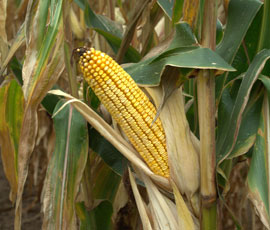Number of GM field trials in Europe in decline

The number of applications for experimental field trials with GM plants in Europe is steadily decreasing, new figures show.
The only exception is Spain, where major companies are carrying out a series of field trials.
By May 2012, only 41 new release applications had been submitted for GM plants in the EU in 2012.
Thirty of the new applications have come from Spain. The remaining 11 are from Sweden, Ireland, Denmark, Germany, Belgium, the Czech Republic, Hungary and Slovakia.
Among the 41 new applications, 27 involve cultivation trials being conducted by large companies like BASF and Bayer CropScience with GM plants that have already been developed.
Almost all of these are taking place in Spain and involve testing maize, cotton and sugar beet that are resistant to pests or herbicides, according to figures from Germany’s Federal Ministry of Education and Research. The rest of the applications come, with one exception, from universities and public research bodies.
Some relate to fundamental research and biosafety research. Only 10 of the new release applications relate to projects for the development of plants with new or improved traits.
Only a few of the new releases relate to research and development projects involving plants with new or improved traits.
The widespread public opposition to GM plants in Europe is making the environment surrounding research and authorisation increasingly difficult.
In the EU, the number of applications for the deliberate release of GM plants has been falling since 2009.
Potato late blight is a major problem for potato farmers and resistant cisgenic potatoes will be tested in the field in 2012 in Ireland.
Scientists and commercial firms in Europe that use genetic engineering methods in plant research and plant breeding have for years had to witness the destruction of crop trials.
In other quarters too they face fierce public opposition, which is why the political situation surrounding the authorisation of GM plants is so fraught with difficulty.
Earlier this year, BASF responded to this situation by relocating its research division to the USA.
Scientists at the world leading agricultural institute Rothamsted Research are trying a different approach.
They are trialling Cadenza wheat that produces a peppermint scent that repels aphids and also attracts parasitic wasps, which are natural predators of aphids.
The field trial is taking place under a high level of security, but it has already come under attack.
Hertfordshire Police have confirmed that a 50-year-old man has been arrested on suspicion of criminal damage following an attack on the site over the weekend.
For more on this topic
Join our live expert Q&A with Rothamsted scientists
Statement expected on GM wheat trial
GM wheat trial vandalised
Have your say on our forum on the trial

